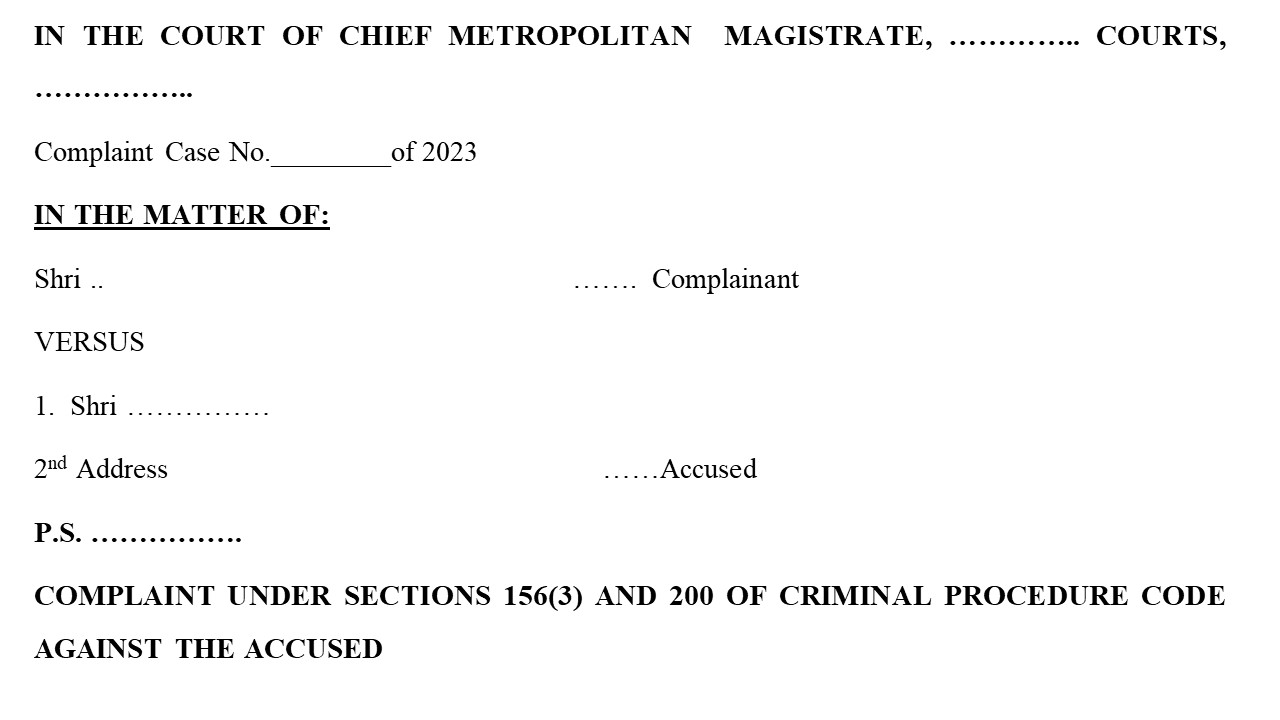Reviews
M.R.P. : ₹ 169.92
(Inclusive of all taxes)
Details
- The Criminal Procedure Code (CrPC) provides the procedural framework for the investigation and trial of criminal offenses. Sections 156(3) and 200 of the CrPC are relevant to the filing of a complaint against an accused person. Section 156(3): This section empowers a Magistrate to order an investigation by the police if he receives a complaint of the commission of a cognizable offense. The relevant part of Section 156(3) reads: "Any Magistrate empowered under section 190 may order such an investigation as above-mentioned." This means that if a person approaches a Magistrate with a complaint about the commission of a cognizable offense, the Magistrate has the authority to direct the police to conduct an investigation into the matter. Section 200: This section deals with the examination of the complainant and the witnesses by the Magistrate before taking cognizance of an offense. The relevant part of Section 200 reads: "A Magistrate taking cognizance of an offense on complaint shall at once examine the complainant and the witnesses present, if any, upon oath..." This means that when a Magistrate receives a complaint, he is required to examine the complainant and any witnesses present under oath to determine whether there is sufficient ground to proceed with the case. In practical terms, if a person wants to file a complaint against an accused under these sections, they can approach the Magistrate having jurisdiction over the matter. The Magistrate may, after recording the complainant's statement and examining any witnesses present, decide whether to: Direct the police to conduct an investigation under Section 156(3). Initiate proceedings himself by taking cognizance of the offense under Section 200.
